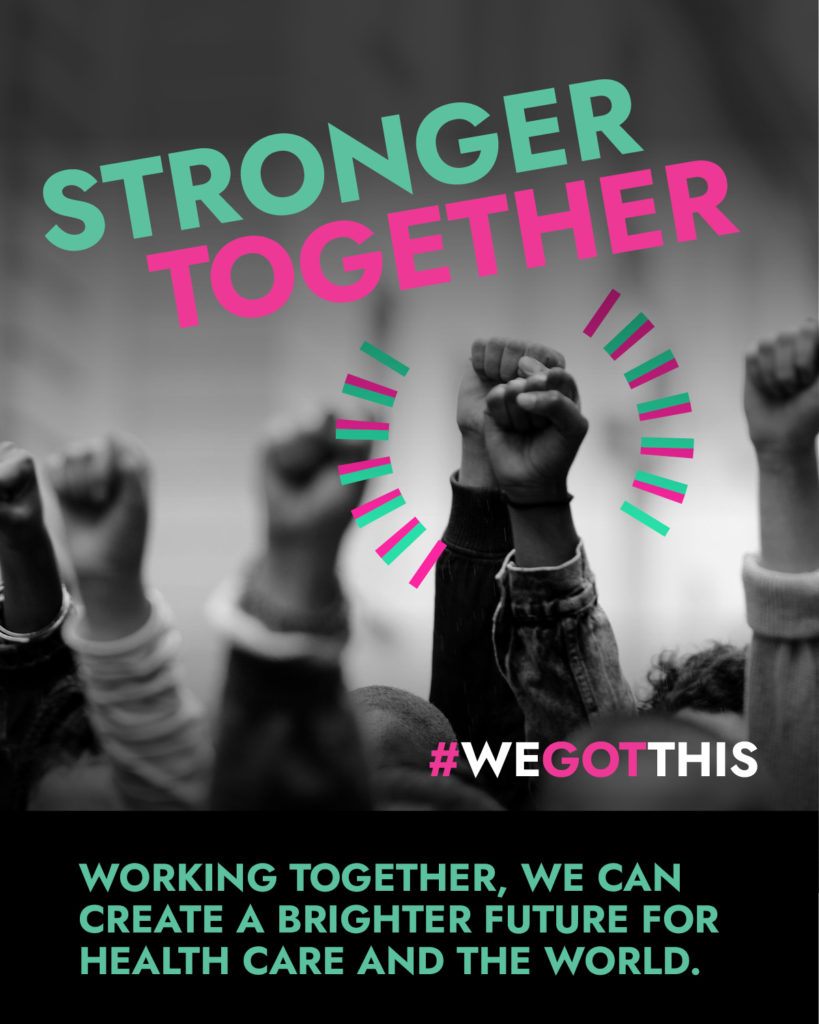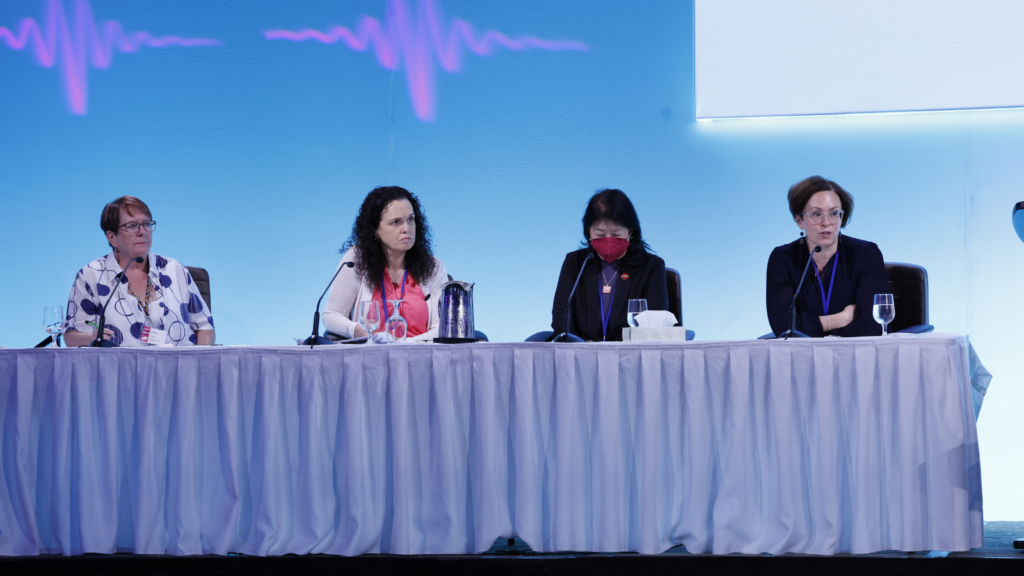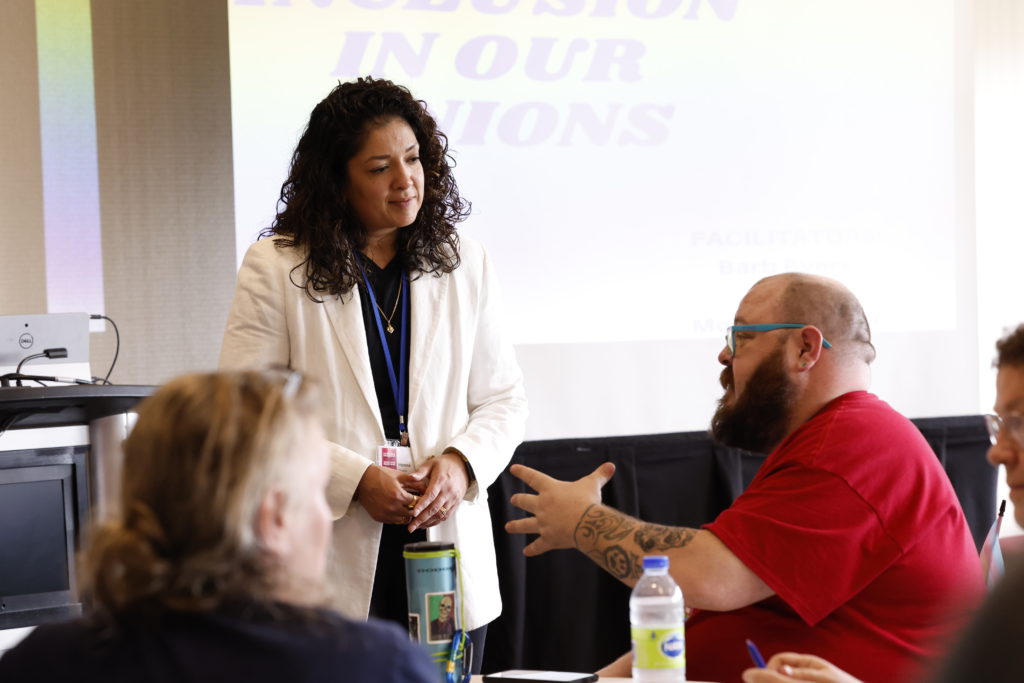

Nurses everywhere are feeling the pressures of the crisis facing health care systems with staffing shortages impacting care across the globe.
Whether in Canada, Ireland or the United States, the panelists at Wednesday morning’s international plenary session all spoke to the urgent need to retain and recruit nurses as a key strategy to respond to the crisis in care.
Canada’s Chief Nursing Officer Dr. Leigh Chapman joined Zenei Triunfo-Cortez of National Nurses United (NNU) and Phil Ni Sheaghdha of the Irish Nurses and Midwives Organization to explore the global perspective of the nursing shortage – and how nurses are mobilizing to create positive change.
As Chapman noted, respect for nurses is a key component of retention – a critical first step to alleviating pressures on the profession.
“If we don’t stop the bleed, we’re just going to have a continual drain of nurses out of the profession,” said Chapman.
Triunfo-Cortez, an NNU co-president, echoed the need to support nurses particularly in the public system as Canadians are now “having to face off against the forces of privatization.”
“We know as you do that outsourcing care to private sector . . . is not the answer that serves our patients,” said Triunfo-Cortez. “The answer is to adequately fund the public health system and to support nurses.”
“Supporting nurses means staffing each and every unit appropriately, each and every day,” she said. “It means an end to this short-staffing crisis that the hospital industry manufactured by driving nurses away from our beloved profession through routinely understaffing and failing to provide us with safe and sustainable working conditions.”
Chapman and Ni Sheaghdha emphasized the need for strong scientific tools and better data to accurately measure the number of nurses needed to deliver safe health care.
“Right across the globe we have fantastic research that tells us: in order to keep patients safe, you must have a minimum number of nurses, depending on the acuity of the patient, to deliver safe care,” said Ni Sheaghdha. This is a concept Ni Sheaghdha told delegates world nursing organizations are collaborating on to maximize the global impact safe nurse-to-patient ratios could have.
“It’s nice to know we’re in this with everyone else,” said RN Barb Campbell of Alberta, with the UNA delegation. “But part of me is very angry that we’re in this with everyone else, too!”
Some came by themselves. Others came in large and small groups, eager to embark on a storytelling adventure.
The session, titled “The power of story: conversations that count”, promised to be an engaging and participatory experience, and it did not disappoint as the nurses explored the benefits, obstacles to and joys of storytelling.
The workshop began with an icebreaker that set off a wave of nostalgia across the room as sparkly-eyed nurses shared their favourite childhood stories with enthusiasm.
Laughter and smiles filled the ballroom as nurses recounted their stories and discovered the common threads that united them.
The facilitator emphasized that storytelling is not just about speaking but also about listening. He used small group activities to highlight the power of story listening and demonstrate how stories benefit individuals and communities, bridge generations, preserve traditions, and foster healing, engagement and entertainment.
As the session progressed, nurses opened up about the profound impact storytelling has had on their professional lives. One mental health nurse revealed how stories provided a pathway to connect deeply with her patients, fostering empathy and understanding.
The workshop stressed that not everyone finds it easy to share their story for many reasons, including guilt, shame, trauma and fear of not being heard. The room fell silent as nurses acknowledged the weight of these barriers while recognizing the potential for healing and growth that lie within each untold story.
In this lively and engaging gathering, the power of storytelling blossomed. Hearts opened, challenges recognized and connections forged. Nurses, with their new gift of storytelling, were encouraged to tell their story and listen to stories told as they weave compassion and understanding into their professional lives.

For some, it was the first time using pronouns to introduce themselves, but everyone took the step in the safe and brave space provided by facilitators Barb Byers and Meera Chandler.
The “Equity and inclusion in our unions” workshop encouraged participants to ask their uncomfortable questions and share their experiences while learning important tools to bring respect, inclusion and equity to their unions. After all, as facilitators pointed out, those values are union values, though they perhaps don’t always get the same focus as safe workplaces or appropriate wages.
The high-energy participants were eager to speak with their colleagues from across the country in break-out groups and in pairs, and many fearlessly addressed the entire room with vulnerability. Racism, privilege and diversity were other topics that incited personal honest conversations among the group. One message above all rang out loud and clear: nurses want equity in their workplaces but need the tools to make it happen.
Fortunately, the facilitators provided valuable steps to advance equity work in workplaces and unions:
Of course, meaningful change doesn’t happen overnight. The journey toward equity and inclusion in our unions requires ongoing education, activism and work – especially considering the changing language around human justice and growing understanding of feelings and experiences.
“The world keeps changing, and that’s a good thing,” said Byers.
Shedding stigma and improving mental health in the workplace was top of mind for nurses participating in the “Psychological health and safety” workshop.
Facilitated by United Nurses of Alberta’s Marie Dancsok and the Canadian Labour Congress’ Tara Peel, the afternoon session invited nurses to explore systematic and individual approaches to promoting good mental health. Nurses were also challenged to think of ways they can become champions for psychological safety in their workplaces.
A psychologically healthy and safe workplace promotes worker well-being and actively works to prevent harm.
“The overall goal is that we fundamentally believe that every injury is preventable, and we do that with a series of tools,” Peel said. “We identify hazards, we work to eliminate those hazards, and if we can’t eliminate those hazards, we ask what we can do to control them.”
According to the government of Canada, psychological health problems and illnesses are the number one cause of disability in the country. That is why the Mental Health Commission of Canada recommends the broad adoption of the National Standard of Canada for Psychological Health and Safety in the Workplace (also known as the Standard).
The first of its kind in the world in 2013, the Standard is a set of voluntary guidelines, tools and resources intended to guide organizations in promoting mental health and preventing psychological harm at work.
Where workers are unionized, the Standard requires they play a participatory role in its planning and implementation in the workplace. A number of unions, including UNA, have the Standard included in their collective agreement.
“The union has a role to play in getting the Standard bargained into your collective agreement,” Dancsok said. “If you can get it bargained under your OH&S, it creates a real path.”
CFNU delegates can read the National Standard of Canada for Psychological Health and Safety in the Workplace on the Mental Health Commission of Canada’s website.